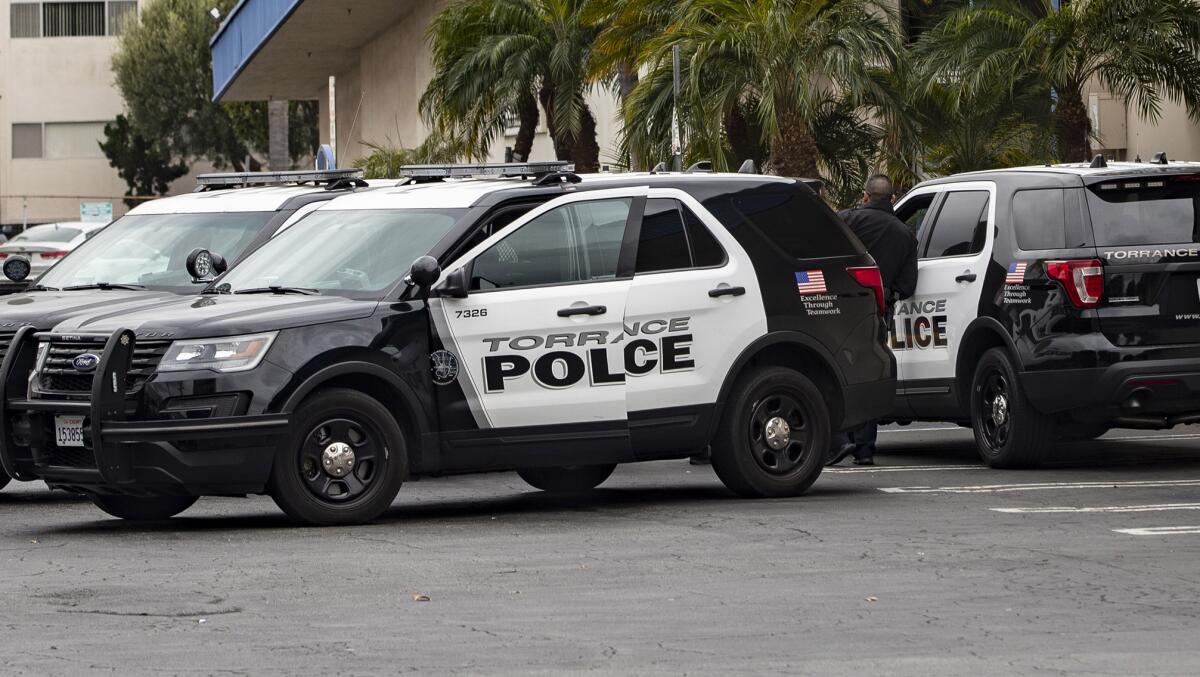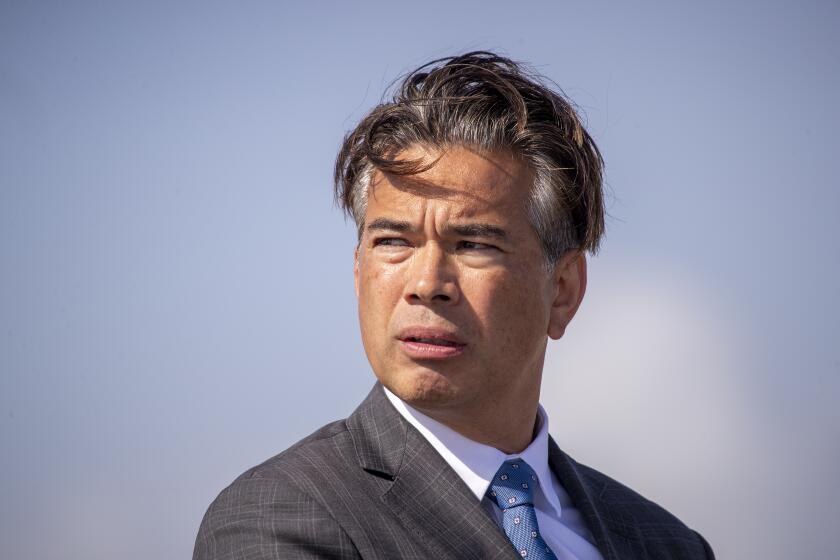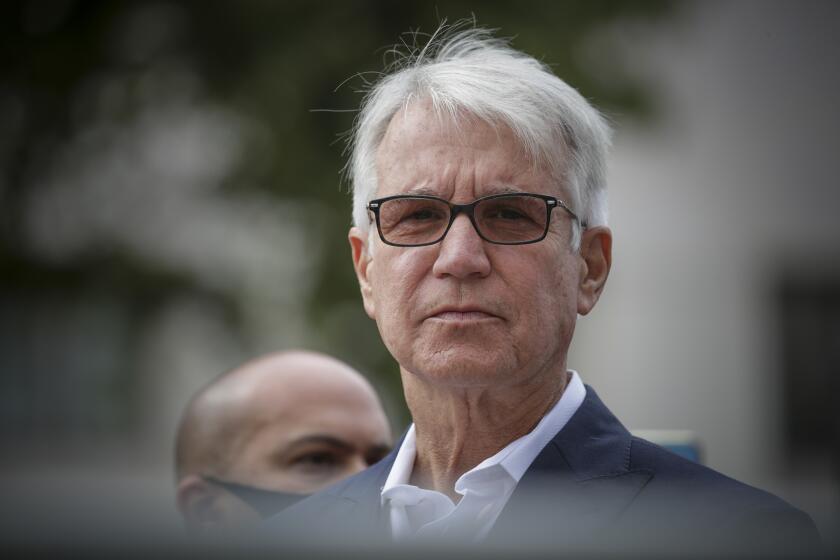This isn’t the first time Torrance Police Department has been accused of widespread racism

- Share via
When Torrance police officers saw Black people in their city in the 1990s, they had two special phrases to describe them, according to a federal lawsuit.
A pair of acronyms — “NIT” and “NITAD” — both used a racial slur to note that a Black person was either “in Torrance” or “in Torrance after dark,” according to the testimony of former Torrance police officers contained in U.S. Department of Justice filings.
In the wake of a Times investigation revealing the details of years of racist, homophobic and otherwise vile texts sent by more than a dozen Torrance police officers, some L.A. County residents have noted that Torrance has a long history of struggling with inclusion, often centered on the practices of its police department.
In 1995, the Justice Department launched an investigation into racist policing in Torrance and sued the department over alleged discriminatory hiring practices.
In court documents filed as part of that case, former officers said they were taught by supervisors during their probationary periods that some African Americans were “upstanding Black citizens” while others were best described by a racial slur. Former officers also said they were instructed to stop and question Black motorists without cause, according to the complaint.
The Times has identified a dozen Torrance police officers who are under investigation for sharing racist and homophobic text messages and images.
The allegations arose from a broader federal investigation into discriminatory hiring practices in Torrance’s police and fire departments, which was launched in 1991. When the Justice Department brought its suit in 1993, the 233-member department employed only three Black officers, six Asian officers and 15 Latino officers. There were only eight people of color employed in a 175-member fire department at that time.
Torrance was one of several Southern California cities sued over discriminatory practices by the Justice Department at the time. Pomona, El Monte and Alhambra all entered into settlements with the government, but Torrance spent millions fighting the reform effort. In 1996, a judge sided with the city and decided the federal government had failed to prove Torrance’s police and fire department tests or application processes were racially biased.
Philip Eure — the attorney who brought the case for the federal government and now serves as the New York City Police Department’s inspector general — could not immediately be reached for comment.
At the time, Torrance Police Chief Joe De Ladurantey defended the department’s tactics as good, aggressive policing.
California Atty. Gen. Rob Bonta announces an investigation into the Torrance Police Department after a Times report on racist texts between officers.
“If I were a citizen, you’re damned right I’d want people stopped,” he told The Times in 1995, dismissing complaints of racial profiling by noting he received just as many allegations of misconduct against officers from white residents.
Police leaders in L.A. County have taken a much different approach in response to the recent racist text scandal.
After news of the hateful messages first became public in August, Torrance Police Chief Jeremiah Hart asked California Atty. Gen. Rob Bonta for assistance. Bonta launched an investigation Wednesday. Los Angeles County Dist. Atty. George Gascón has also spoken highly of Hart for being forthcoming with information about the scandal as his office reviews how many criminal cases might be impacted by the officers’ alleged misconduct.
County prosecutors have already dismissed 40 cases where officers implicated in the scandal would have been material witnesses, according to Greg Risling, a district attorney’s office spokesman. The Torrance city attorney’s office has also dismissed 50 criminal cases involving officers under investigation as they were unavailable to testify, according to Sgt. Mark Ponegalek, a Torrance police spokesman.
Fifteen officers remain on administrative leave due to the scandal, Ponegalek said. Long Beach police officer Maxwell Schroeder, a former Torrance recruit who was among the officers The Times identified earlier this week, was suspended Friday as a result of the scandal.
“This department does not tolerate biased or prejudicial behavior by any employee — this officer’s actions do not reflect the morals held by our officers who engage with our diverse community,” Long Beach Police Chief Robert Luna, who recently announced he will run for sheriff next year, said in a statement. “Every Long Beach resident deserves to be treated with equity and respect when they interact with our personnel.”
Cody Weldin and Christopher Tomsic, the two officers whose alleged criminal behavior sparked the investigation into the texts earlier this year, are no longer employed by Torrance police.
Two former Torrance police officers were charged with spray-painting a swastika inside of a resident’s car, and prosecutors are now reviewing hundreds of cases involving the ex-cops, officials said.
There are five officers implicated in the scandal whose identities remain unknown. Torrance police have declined to confirm or deny the names of the officers caught up in the scandal, citing ongoing administrative and criminal investigations.
More to Read
Sign up for Essential California
The most important California stories and recommendations in your inbox every morning.
You may occasionally receive promotional content from the Los Angeles Times.














